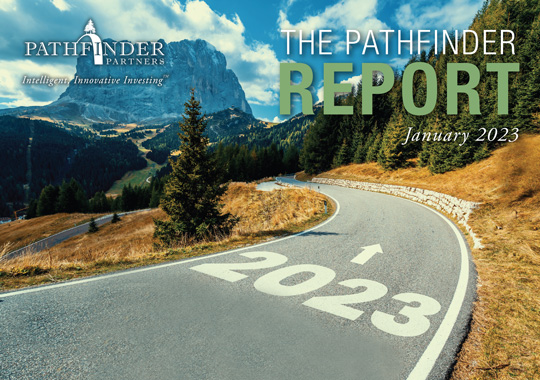Zeitgeist - News Highlights
Rising Apartment Supply Doesn’t Meet Housing Shortfall; Rising Construction Costs, Higher Rates May Dampen Supply

According to a December report from the U.S. Census Bureau, more than 19 million of the nation’s 44 million rental households (43%) spent more than 30% of their income on rent and other housing costs from 2017-2021 (the general rule of thumb dictates housing costs should be less than 30%). The situation has been exacerbated by the unprecedented rent growth of 2021 and 2022 – approximately 25% – and historically high inflation. As a result, new household formation is slowing, and apartment rent growth is moderating.
In parallel, more than 400,000 apartment units were completed in 2022 and nearly 500,000 are expected to come to market in 2023 – more than any year since 1986, according to CoStar. Despite the increase in supply, the U.S. is still facing a shortfall of more than four million housing units and most cities will remain drastically undersupplied for many years.
As a result of the affordability issues and increased supply, many experts are predicting a moderation of rent increases in 2023. Pathfinder has long predicted that the robust rent growth of 2021 would moderate in 2022 and slow further in 2023, which we have been seeing. Both Yardi and Moody’s expect rent growth to decrease to about 3% with some markets – especially those with high new supply – experiencing flat rents. Despite the changing market fundamentals, historically high home prices and rising mortgage rates continue to buoy rental demand, providing a future layer of stability for the industry. According to a Freddie Mac study, about 15 million U.S. households have been priced out of buying a home due to the recent increases in interest rates, further strengthening the nation’s pool of renters. We expect new apartment supply to slow in response to high construction costs and interest rates, which require higher rents for new projects to be economical.
Post-Pandemic Resident Events
When the Pandemic hit in March 2020, apartment resident events –used by landlords to build community and increase resident retention – quickly shifted from boisterous ice cream socials in the clubhouse to lackluster meet-and-greets over Zoom. As the pandemic wanes and in-person events reemerge, the lingering effects of Covid-19 have forced property owners to reevaluate their tried-and-true community building techniques.
The attractiveness of previously popular events like indoor happy hours and fully-occupied yoga classes have diminished. In a post-Pandemic landscape, many residents are more conscious of their personal space and shy away from larger indoor gatherings. In response, landlords are holding more outdoor events like summer pool parties and afternoon “yappy hours” in the community dog park.
Monthly rents – especially as a percentage of income – are meaningfully higher than they were before the Pandemic and pay-to-play events like food trucks, potlucks and secret Santa exchanges are falling out of favor. Instead, communities are shifting to more landlord-funded events like wine tastings, outdoor movie nights with food, casino nights, hosted happy hours and nutrition or cooking classes. Some landlords have moved toward work or educational-related themes like free professional headshots or resume writing workshops. In today’s environment, successful landlords are pivoting to meet residents’ changing preferences and recognizing there can be a meaningful return-on-investment for well executed community events.
(Editor’s Note: Pathfinder appreciates the value of resident events and holds a quarterly event at each of our properties. We’re big fans of hosted food trucks, holiday costume contests, dog-friendly happy hours and BBQs at our community pools. We believe these events keep our residents engaged and ultimately reduce tenant turnover costs.)
Share this Article
IN THIS ISSUE
PATHFINDER PARTNERS INCOME FUND, L.P.
A Stablized Multifamily Fund
CHARTING THE COURSE
Is This an Economic Pivot Point?
FINDING YOUR PATH
What Goes Up, Must Come Down (To Earth)
GUEST FEATURE
An Article about Nothing
GUEST FEATURE
Resiliency: An Important Driver of Value for Businesses and Investors
ZEITGEIST
News Highlights
TRAILBLAZING
Hiawatha, Seattle, WA
NOTABLES AND QUOTABLES
Integrity
